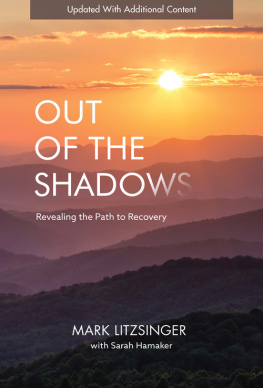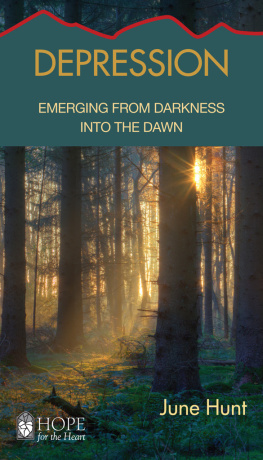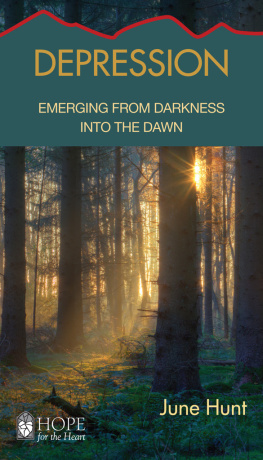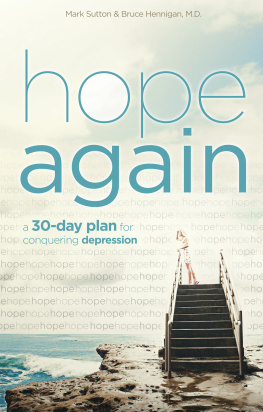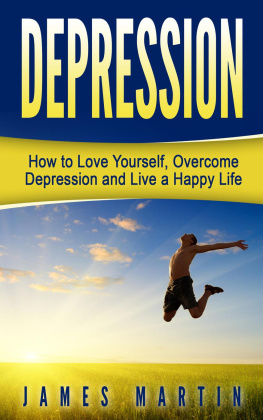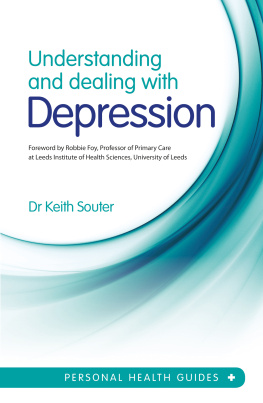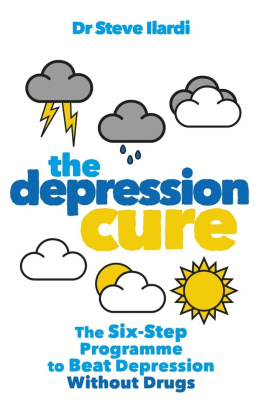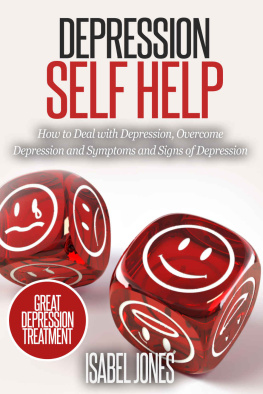Out of the Shadows: Revealing the Path to Recovery
By
Mark Litzsinger with
Sarah Hamaker
Out of the Shadows: Revealing the Path to Discovery
By Mark Litzsinger
with Sarah Hamaker
Copyright 2018 Richard M. Litzsinger
ALL RIGHTS RESERVED
No part of this publication may be reproduced, stored in a retrieval system, or transmitted to any form or by any meanselectronic, mechanical, photocopying, recording or otherwise without prior written permission from the author
ISBN: Perfect Bound 978-0-9980204-0-24
ePub 978-0-9980204-1-9
ePDF 978-0-9980204-2-6
LCCN: 2017957799
Printed in the United States of America
To Bonnie Senner, Dr. Bill Scheftner, Dick and Dona Litzsinger, and my siblings, Robin, Heidi, Shawn, and Todd. Without your encouragement, support, listening skills, patience, and medical knowledge, I would probably not be here today and would not have been able to write this book with the help of the lovely Sarah Hamaker and her wonderful support staff, including Connor Stratman and researcher Whitney Hopler.
No one goes through life for free. There are many bumps on the road through life. We all face challenges, regardless of our economic standing. Dedication and perseverance are the keys to overcoming these obstacles, and each hurdle conquered makes us stronger and better capable of handling the next bump.
Disclaimer:
This book is designed to provide information on depression from the authors personal knowledge and experience. The publisher and author do not offer any legal or other professional advice. Any advice inferred from the materials herein may not be suitable for your situation. If advice or expertise is needed, the reader should consult with the appropriate professional. This book is not a comprehensive review of the subject matter. This book has not been published to be specific to any individuals or organizations situation or needs. Every effort has been made to make this book as accurate as possible. However, there may be typographical and/or content errors. This book should serve only as a general guide and not as the ultimate source of depression information or a substitute for professional assistance. This book contains information that may become out of date and is intended only to educate and entertain. The author and publisher make no representations or warranties with respect to the accuracy or completeness of the contents of this book and specifically disclaim any implied warranties of merchantability or fitness for a particular purpose. No warranty may be created or extended by sales representatives or written sales materials. Neither the publisher nor author shall be liable for any loss of profit or any other commercial damages, including but not limited to special, incidental, consequential, or other damages.
Foreword
W HATS HAPPENING TO THE MENTAL HEALTH OF AMERICANS MAY surprise and shock you. In any given year, 43.8 million adults experience mental illness. By diagnosis, approximately 1 percent of the population lives with schizophrenia, 2.6 percent with bipolar disorder, 6.9 percent with major depression (Marks disease), and 18 percent with anxiety disorders. One in five children between the ages of 13 and 18 has, or will have, a serious mental illness. Suicide is the second leading cause of death in youth between the ages of 15 and 24, and 90 percent of those had an underlying mental illness.
With this startling prevalence in our society, you might ask why isnt there more dialogue to gain understanding and to ensure adequate treatment and support for families and persons living with a mental illness. The problem is simple: Mental illness is still seen as a stigma. The stigma is rooted in our history when it was an embarrassment for families to have a member with mental illness. Many considered a mental illness or addiction a moral failure instead of an illness. It is time we move beyond these out-of-date conceptions and get educated.
Stigma keeps the conversation down. It isolates the person with a mental illness and usually that persons family too. It prevents others from understanding and helping. Stories are an excellent way to reduce stigma. Intellectual descriptions of mental illness help somewhat, but stories are the best vehicle for learning, especially when the stories are from someone you know. For then it becomes clear that although mental illness is a disease of the brain, there is a real person there too, who may function quite well at times.
Marks very personal story about his own battle with depression helps us understand why we need books like this. He describes his brothers, sisters, and others worrying about his erratic behavior. His parents struggled with understanding what was going on during his periods of severe depression. As chairman of a billion-dollar company, he had nowhere to hide.
When I read the first edition of this book, there were times I almost asked aloud, Where were those who could educate the family on the disease? A persons support system, family, friends, and work colleagues cant help if they dont know what is going on. For Mark, how scary this period must have been, wondering what was happening to him and why couldnt he live up to his expectations for himself. Through sharing like Mark has done in this book, others can become aware of the disease, symptoms, treatments, and the need for support for both the person living with a mental illness, and those caring for that person.
I have my own personal journey, once having been one of two helpless parents trying to do our best for a child with mental illness. That led both my wife and I to the National Alliance on Mental Illness (NAMI), a national organization with state and local chapters dedicated to education, advocacy, and support for families and persons living with a mental illness. A signature program of NAMI is Family to Family, a 12-week class taught by peers for caregivers, designed to enable them to take the leadership with their loved one in understanding the disease, ensuring support mechanisms are in place, and advocating for their care. What a shame this program did not come to the attention of Marks family.
We need to get more comfortable in talking about mental illness, its symptoms, treatments, and needed support. Sensational news accounts of bizarre or dangerous behavior of someone with a mental illness need to be balanced by stories of people struggling with the disease, but still trying to be productive persons in our world. Mark accomplished this in writing his book.
We need to educate our legislators so they realize mental illness is just another illness, one of the brain. Medical care needs to be available to those with mental illness, something that for too long had only limited coverage in health insurance policies. As a result of insurance restrictions, and lack of government programs, currently the support network for mental illness is weak. Mark had the benefit of being able to afford the best in treatment, but not everyone is so lucky.
But there is hope. The National Institute of Mental Health is funding research in new exciting directions. The ability to see results through brain scans helps accelerate understanding. Data-driven research is opening many new avenues. We hope that we can move beyond treating symptoms to finding some cures. But we should not minimize the importance of treating symptoms to help the person with the disease improve to the point where he or she can lead a more normal life. There is now a much more active dialogue on mental illness, and that can lead to more understanding and support.
John Schladweiler
Board President
NAMI Illinois
August 2017
Introduction
But with the slow menace of a glacier, depression came on. No one had any measure of its progress; no one had any plan for stopping it. Everyone tried to get out of its way.
Next page
